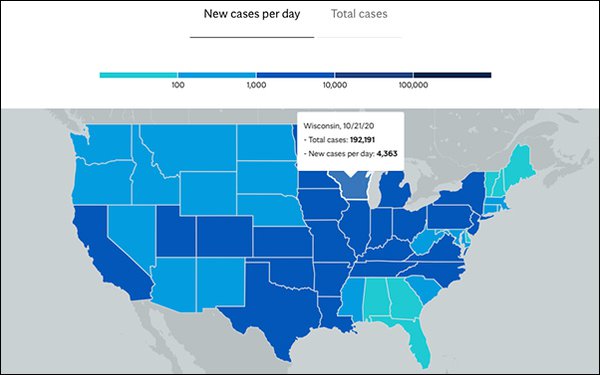Google Search Terms Can Help Forecast COVID-19 Hot Spots In U.S.: Mayo Clinic Report
- by Laurie Sullivan @lauriesullivan, October 22, 2020

Location-specific search terms identify a strong correlation between keyword searches on the internet search engine Google Trends and COVID-19 outbreaks in parts of the U.S., according to a study published in Mayo Clinic Proceedings. These correlations were observed up to 16 days prior to the first reported cases in some states.
Mohamad Bydon, a Mayo Clinic neurosurgeon and principal investigator at Mayo's Neuro-Informatics Laboratory, said in a video that it also appears that people go to Google before they go to their doctor. Since many people initially search for information on these terms, it was easy to identify those hot spots.
“We could predict the hot spots up to 16 days ahead of the first reported cases in those areas,” he said. The analysis would enable hospitals and researchers to warn the communities in advance. Traditional surveillance like widespread testing and public health reporting can lag behind the spread of the disease.
Delayed or incomplete reporting of results can lead to inaccuracies when data is released and public health decisions are being made.
The ability to show how Google Trends and analytics help to forecast COVID-19 hot spots is important because it confirms that data can predict intent and interest. For brands, that means interest in products and services in specific areas before sales rise.
To forecast the hotspots, the Mayo Clinic team analyzed 10 terms: COVID symptoms, coronavirus symptoms, sore throat+shortness of breath+fatigue+cough, coronavirus testing center, loss of smell, Lysol, antibody, face mask, coronavirus vaccine, and COVID stimulus check.
The study was conducted in collaboration with the Mayo Clinic Robert D. and Patricia E. Kern Center for the Science of Health Care Delivery.
Mayo Clinic recently introduced an interactive COVID-19 tracking tool that reports the latest data for every county in all 50 states, and in Washington, D.C


